 State parliaments are an indispensable component of representative democracy in a federal state. Our research focuses on fundamental questions about the specific ways in which they fulfil parliamentary functions and what role they play in Germany's federal system and within the framework of the European Union. We are also interested in comparisons with sub-national (regional) parliaments in other states. In previous research, for example, we have investigated how state parliaments exercise parliamentary control (e.g. via the right to ask questions), how they have fulfilled the function of electing prime ministers and what national and international cooperation they enter into and maintain.
State parliaments are an indispensable component of representative democracy in a federal state. Our research focuses on fundamental questions about the specific ways in which they fulfil parliamentary functions and what role they play in Germany's federal system and within the framework of the European Union. We are also interested in comparisons with sub-national (regional) parliaments in other states. In previous research, for example, we have investigated how state parliaments exercise parliamentary control (e.g. via the right to ask questions), how they have fulfilled the function of electing prime ministers and what national and international cooperation they enter into and maintain.
If you have any questions about state parliamentarism, please contact Prof Dr Franziska Carstensen at carstensen@iparl.de .
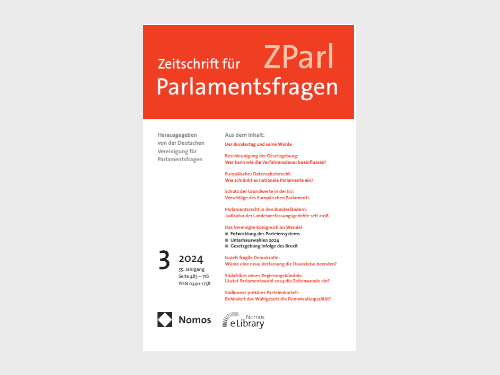
The state constitutions and the case law of the courts shape the work and norms of parliamentary work. Kevin Settles documents the parliamentary jurisprudence of the sixteen state constitutional courts between 2018 and 2023 and shows how the courts have adapted the law to new political realities such as the rise of the AfD and the coronavirus pandemic through judicial reviews, constitutional complaints and other proceedings.
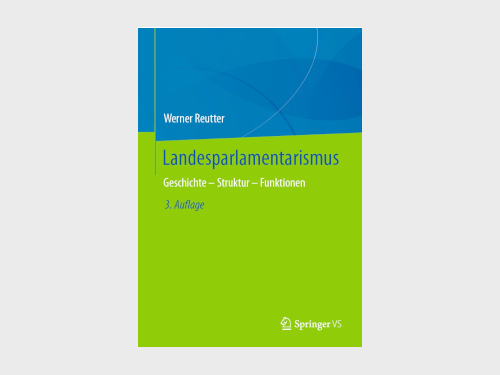
Does state parliamentarism work differently in Berlin than in Bavaria? Answers to these and many other questions are collected in Werner Reutter's new anthology on state parliamentarism. Among many other authors, Danny Schindler and Suzanne Schüttemeyer have taken a closer look at the Brandenburg state parliament and Franziska Carstensen at the state parliament of Saxony-Anhalt.
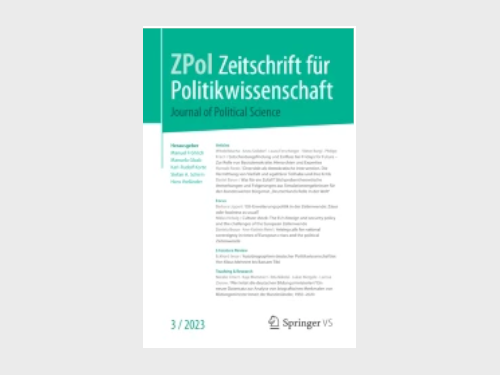
In view of new coalition options and necessities, internal party processes are becoming increasingly important when forming a government. In their article for the Zeitschrift für Politikwissenschaft, Oliver Kannenberg and Danny Schindler analysed the decision-making process of the Berlin SPD after the 2023 repeat election - from a power-political perspective and from the point of view of inner-party democracy.
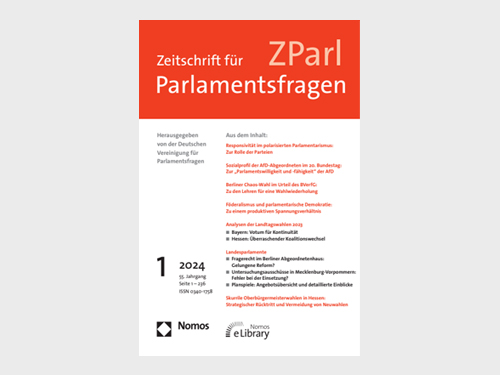
A comprehensive reform of the right to ask questions in the Berlin House of Representatives was intended to strengthen the parliament. In her differentiated analysis, Franziska Carstensen answers the questions of whether this project has been successful and where there is a need for improvements.
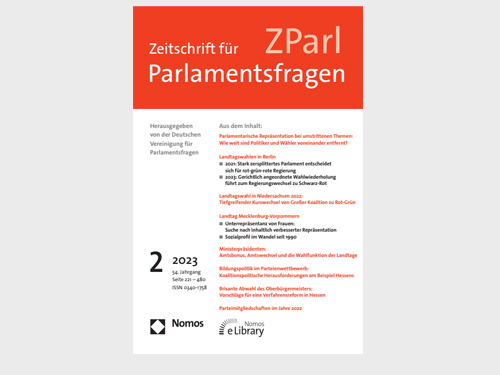
The article by Franziska Carstensen, Jakob Hirn and Kevin W. Settles analyses the significance and effects of changes of office in the office of prime minister in all federal states, sheds light on the existence of a possible office bonus and the role of the term of office for re-election. They also analyse reasons for resignation and examine whether parties benefit from having an incumbent prime minister in their ranks during state elections.

In the third round of voting, Kai Wegner, the new Governing Mayor of Berlin, finally made it. After two failed attempts, he was elected in the Berlin House of Representatives at the end of April with 86 votes, out of 86 MPs in the governing coalition of CDU and SPD. All's well that ends well? Not at all, because the national outcry was huge when the AfD parliamentary group announced that they had helped Wegner into office with their votes. Memories of the Kemmerich case in Thuringia quickly came to mind. There was a lot of discussion about firewalls and populist methods, but little about the election process that allowed these issues to arise in the first place. After all, the election of heads of government in Germany is generally held in secret, unlike substantive votes in parliament, for example. Why is this the case and does it have to be? We spoke to Prof Frank Decker about this. Frank Decker is a professor of political science and sociology at the University of Bonn and a member of the scientific advisory board of the Progressive Centre in Berlin. His research interests include the renewal and reform of democracies.


Sign up to receive updates, promotions, and sneak peaks of upcoming products. Plus 20% off your next order.